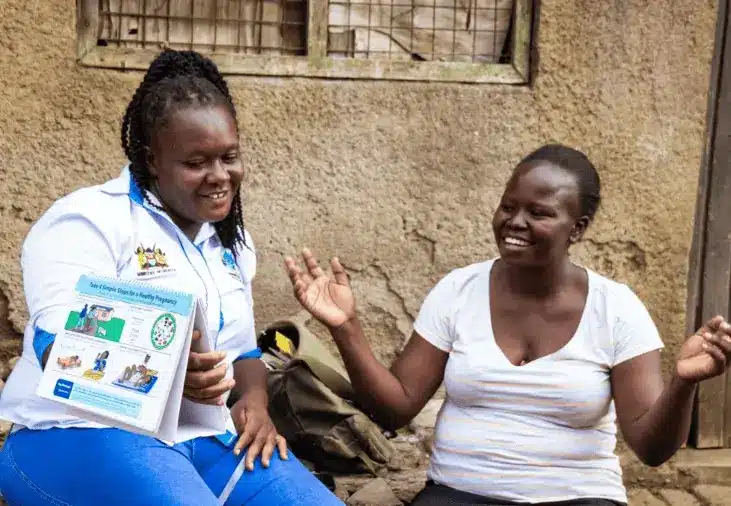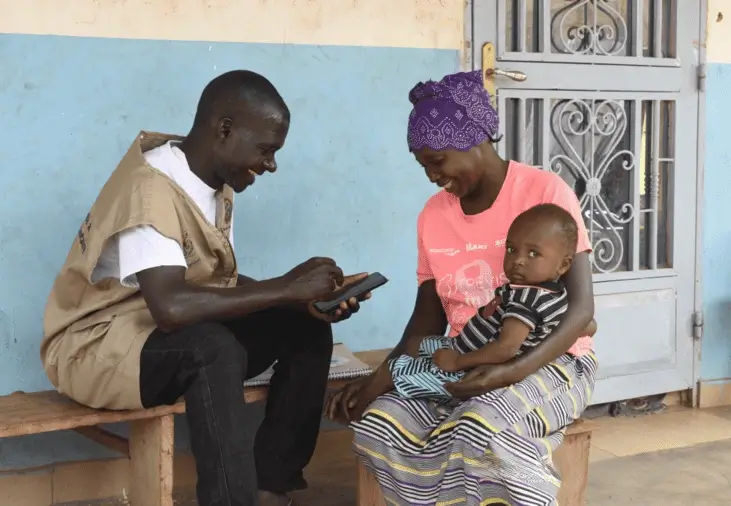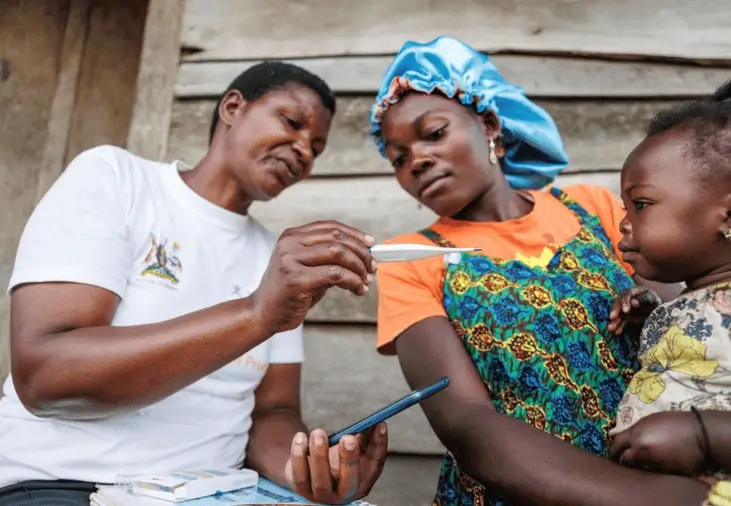Bringing Healthcare
to Every Home
Bringing Healthcare
to Every Home
Living Goods ensures families receive essential health services where
they live so no one is left without care.
24%
The African region bears over 24% of the global disease burden but has access to only 3% of the world’s health workers and less than 1% of financial resources.
(World Health Organization, 2019)
5 Million
Each year, nearly 5 million children under age 5 die, primarily from preventable diseases like pneumonia, diarrhea, and malaria. Of these, ~2.9 million deaths occur in Sub-Saharan Africa, where 1 in 13 children dies before their fifth birthday.
(WHO, 2020; UNICEF, 2023)
287,000
In 2020, 287,000 women died from pregnancy-related complications, with 70% of these deaths occurring in Sub-Saharan Africa.
(UNICEF, 2023)
50%
At least half the world’s population still lacks access to essential health services. Each year, nearly 100 million people are pushed into extreme poverty due to out-of-pocket healthcare expenses.
(WHO; The World Bank, 2017)
Community health workers are trusted, trained community members who deliver essential health services directly to their neighbors, traveling door-to-door to provide care. These frontline workers are often the first point of contact for families with the healthcare system.
They can save millions of lives far faster and at a lower cost than facility-based care, making community health a cornerstone for achieving universal health coverage.
What We Do





How We Create Impact
- We support and equip community health workers to save lives by providing critical, life-saving care directly to families in need.
- Our partnerships with governments focus on maximizing community health worker performance, ensuring they have the tools to deliver high-quality care right to people’s doorsteps.
- Through mobile technology and performance management, we’re building sustainable, cost-effective, high-impact health systems that save lives.
A randomized controlled trial in Uganda showed that Living Goods-supported community health workers reduced under-5 mortality by 27% for less than $2 per person annually.
2024 Impact at a Glance
1,540,361
Under-five sick child treatments/referrals
220,170
Under-one sick child treatments/referrals
111,311
New pregnancies registered
268,038
Total couple years of protection
9,996
Community health workers supported
4,601,240
Total people served
1,540,361
Under-five sick child treatments/referrals
220,170
Under-one sick child treatments/referrals
111,311
New pregnancies registered
9,996
Community health workers supported
4,601,240
Total people served
268,038
Total couple years of protection
Download Our Latest Stakeholder
Report
Dive into the recognitions we've earned over the years and understand the dedication and hard work behind our success.
Support community health workers to save lives today, ensuring a better tomorrow.
Contact Us
-
32 Mandera Road, Kenya
Get In Touch -
Zone du Bois, Burkina Faso
Get In Touch -
Bugolobi, Uganda
Get In Touch -
1423 Broadway, United States
Get In Touch
- 2025 Living Goods. All rights reserved.
